#climate apathy
Explore tagged Tumblr posts
Text
One of the philosophical/theological differences between judaism and other religions is how we conceive of the consequences of doing bad things.
I just heard someone say, "well jews don't believe in hell, so why don't you-" and just never sits right with me that the only thing that could prevent you from acting in bad ways are the threat of an eternal punishment. The implication that you shouldn't care about the consequences of your actions on the worldly level are astounding as well.
I care about not doing bad because it hurts people - myself included. Even if I did believe in hell... It wouldn't factor into how I live life. I fundamentally don't agree that we should treat this life and this world as a temporary home - a rest stop - where our actions only matter insofar as it affects where you go in the afterlife.
#jumblr#personal thoughts tag#i think that's also why you have apathy from people about things like climate change and social issues#because if you think of this life as a short stop to Eternal Bliss™ you don't NEED to care about the material world#in fact you'll just distract yourself from earning your spot in Eternal Bliss™#and the people who DO care about the Worldly Things are just in denial about jow much they want Eternal Bliss™#obviously that's a generalization of a mindset that i have seen before that not everyone will believe in#the only thing i feel the need to believe in is g-d and that He wants me to LIVE g-ddamnit
905 notes
·
View notes
Text
caring about things is good actually
246 notes
·
View notes
Text
How Climate Change is threatening Culture's Worldwide
NO.1
Mass relocations are a thing that is set to happen thanks to climate change. And as more natural disasters happen that circuits the need for climate change education, more doomsday scenarios appear instead of healthy solutions to help save the planet--with the water rising from melting ice caps, it is destroying island and southern communities, and producing record number droughts in different sides of the planet. Why then does the media frame climate change as something inevitable, and how does that produce apathy, not just in regular people, but in these companies as well?

NO. 2
The research about climate change is all about education; informing the public about counter-options to reduce carbon levels in the air. I know this could benefit one person, if not the whole group, and that is what’s important. So how do we define apathy toward climate change? Well, the definition of apathy first is a lack of feeling or emotion towards something. It is based on a variety of subjects, like race, sex, education, age, food, culture, groups of people, etc. How does apathy relate to other negative concepts like indifference, and how are those emotions dangerous? ‘’How does apathy come to exist? Through ignorance of a toxic and uncoordinated action. Framing is used as an institution and illustrates how it shapes media framing in a toxic event. Even in systems who are supposed to help the average person, are people seen to have a ‘tendency to behave in accordance with what they see as being in their own interests.’’

NO. 3
From “Climate Change and Planned Relocation in Oceania.” Sicherheit Und Frieden (S+F) / Security and Peace, vol. 34, no. 1, 2016, pp. 60–65: ‘‘The sinking islands have become a symbol of the consequences of manmade global warming. The foreshadowing of climate change-related environments and social developments that will affect other parts of the world sooner rather than later. In the current academic and political discourse, migration figures prominently among the social effects of climate change, and climate change-induced migration-conflict nexus, and research and findings have become ever more complex and sophisticated, trying disentangle the ‘long and uncertain casual chains from climate change to social consequences like conflict.’’
youtube
NO. 4
In conclusion, the Guna Yala tribe will not be the last island community to relocate because of the rising sea level, thanks to climate change. In fact, billions of people are going to be fleeing, and forced to relocate because of the threatening climate, and the United Nations Framework Convention for Climate Change understands (UNFCCC). From Climate Change and Planned Relocation: HOW CLIMATE RESETTLEMENT CAN WORK FOR COMMUNITIES. Danish Institute for International Studies, 2017: Entire cultures and societies will have to cope with the ‘‘ability to foster broader resilience-oriented solutions driven by the livelihood needs and strategies of the communities in question. When relocation is found to be necessary, [like in the Guna Yala tribe’s case], it should be approached as an expansion of existing livelihood strategies and mobility patterns, not an end to them.’’
#climatechange#classism#race#race in media#relocations#climate#apathy#panama#news#sociology theories#anthropology#anthropologistexplains#anthropologist#society#culture#culturaltopics#climaterelocations#Youtube
65 notes
·
View notes
Text
A note on statistics, global horrors, apathy and empathy
With things like war, genocide, climate change, capitalism and epidemics on a scale so, so much greater than anything we can wrap our heads around, it's easy to just shut down and forget the horror of it all. To read statistics like 1,000,000 or 20,000 and feel nothing.
The death toll for Gaza has reached over 26,000, including over 80 journalists and over 130 UNRWA aid workers. The death toll for Ukraine has reached over 500,000. And that's just humans and deaths- what about just how many animals and pets have died and how many cities, beloved homes and natural areas have been utterly destroyed? The amount of people that have been physically and mentally scarred for life, if they'll even survive, those who have broken bones or lost limbs and are struggling with filth and infections, lack of basic resources and accessible medicine?
Distance and a sense of helplessness are some of the roots of apathy, and big numbers are a third. We humans just aren't wired to be able to picture a million or a billion or even a hundred of anything, to wrap our heads around it.
If you saw a person dying in front of you today, violently or even peacefully, you wouldn't be able to stop thinking about it. You hear that an unnaturally extreme flood caused by climate change has killed thousands on the news, and you go about your day without a second thought.
Maybe this is one of the reasons figures in positions of massive power find it so easy to ruin thousands of lives based on their personal whims and beliefs. To see huge groups of people as faceless, identical, and brand them 'mobs', 'aliens' and fundamentally inhuman for their differences- and when the time comes, to let so many individual, living, feeling fellow humans die.
And along with the seemingly inversely proportional relationship between the scale of a problem and how much empathy we afford it, (i.e the bigger the problem the less time we spend thinking and caring about it) we humans also have a wonderful cognitive bias called the Action-Inaction bias.
Basically, if somebody intentionally does something and it results in a death for instance, we see that as worse than if somebody intentionally doesn't do something and it results in a death, though objectively both have caused the exact same level of harm. Whether you are pulling a lever to kill somebody or not pulling a lever to let them die, in the end somebody is dead and you are the cause of that.
There's also of course the Bystander effect- TLDR; the more people there are witnessing a bad thing happening the less personal responsibility each person feels and the more we think somebody else will do something about it, so the likelihood of any individual person acting decreases- which also comes into play when we're facing big numbers.
So whenever somebody tells you you're being oversensitive for crying over the news or some massive societal issue, tells you it's not your responsibility or to just not worry about it, or worse, that there is nothing you can do about it:
Remember.
Caring less is the first step to watching an atrocity being carried out in front of your very eyes and doing nothing to stop it.
And when what is happening now becomes what people call history, it's the first steps to being what is thought of when the people of the future ask; 'Why didn't any of the average people watching this happen do anything to stop it?'
Look at graphs that show data in a more visual way
Look at photographs and videos
Read individual accounts, talk to people and follow influencers experiencing the effects of these things personally
Remember every single 'thing' making up that hundred or thousand or million is or was a person. A life, a countless number of feelings and opinions and dreams that they have had, and an infinite number they could've had if they had not been killed.
#humanity#humanitarian crisis#gaza#genocide#stop war#war crimes#war in ukraine#world politics#empathy#climate change#human rights#compassion#psychology#Empathy#Apathy#hopelessness#isolation#misanthropy#hope
6 notes
·
View notes
Text
Hey so uh.
I dont think voting is the only solution. Nor will it necessarily get us what we want immediately. And i think protest is more important and more effective.
However.
Conservatives. Would. Not. Be. Trying. To. Make. Voting. Impossible. And. Taking away. Actual voting places from marginalized areas. .
If it meant ABSOLUTELY nothing.
Hope that helps.
✌️
#if it makes me a lib to just even ACKNOWLEDGE that fact. then i think ur probably an entirely irrational person.#very. very sorry for wanting to do everything i can. very sorry.#its almost like... you can protest...... and also.... vote.........#its almost like voting in of itself at this point is kinda a protest since theres places w voting booths being removed or people who have#to drive miles just to vote. like. i kinda think it means somethin here pal.#like. republicans dont want us to vote. it benefits them when we dont. it also benefits them when you're riddled with nihilistic apathy.#u probably feel so defeated that u probably dont even think debate matters or means anything at all#whatever. im bored of you and your personality.#its this type of nihilistic thinking that leads to accelerationism. you think fuck it. lets just let the republicans win. show the world#how bad they are. thinking that will make people finally stand up. but the problem is people are cowards. and they wont. and i dont think#its worth taking the chance on and rolling the dice on when the outcome of letting republicans win is very likely to be genocide.#and i really really dont think being smug and all 'i told you so' to libs is worth it enough for vast amounts of people. people you#probably care about. being killed in swathes. i really really dont think letting things get Worse on Purpose is a great idea#and it honestly makes you look like an evangelical republican who thinkis climate change is a smite from god.#bc functionally you're doing the fucking same thing. instead though you're pretending its a smite from you.#i kinda firmly believe that accelerationism is a intellectual bystanders excuse for not doing shit. like genuinely just sitting there#watching ppl suffer to prove a point. gtfoh
22 notes
·
View notes
Text
I’m becoming really climate apathetic. Like, this year southern Taiwan faces yet another drought. we didn’t have droughts only 6 years ago or so, but now the normal rainy season is no more. and I can’t bring myself to care. this year it’s a drought, next year will be the same. I can’t shower, can’t easily get potable water, face food shortages and price increases, but so what, it’s not gonna get any better. Every year is the hottest on record, such that it dosen’t phase me. horrible climate disasters but i’m becoming numb because this is just how things are I guess.
#apathy#climate change#climate doomerism#hopelessness#fucking kill the rich#I support ecoterrorism but not in a Ted Kazynski way in a targeted sabotage way#I don't support just going around killing people#we need to make it unprofitable to operate with non-enviromental means#jen rants
8 notes
·
View notes
Text
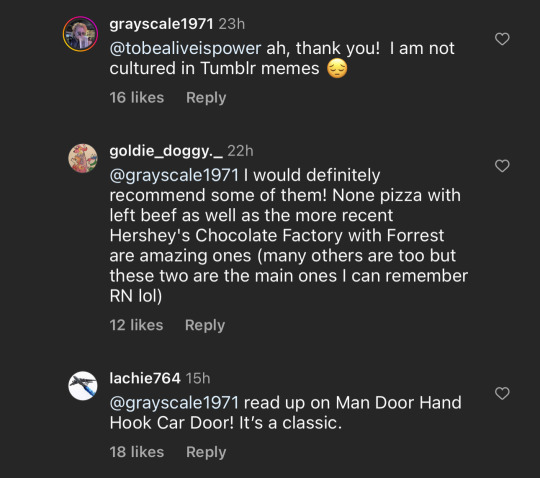
#when my dad would drive me to and from boarding school during breaks we would be in the car for 3 hours and talk about the same thing#almost the whole time#and one time it was just memes#we had a discussion about meme culture#and the spread of information#and how various memes reflect the general state of my generation#i didn't have the words for it then but i think the main point i managed to get across was#gen z grew up hearing from millenials about how shit everything was. we didn't even have a chance at optimism#and it reflects in a lot of the jokes. gallows humor fr#and that's something my father and people his age could never really understand. being bombarded by so much awful information so young#i remember lying in bed at night not being able to sleep at 10 years old over climate change#having a panic attack over the presidential results in 2016#apathy builds from that#and it shows in online culture#as much as it shows in real life#out of context comments
4 notes
·
View notes
Text
Your reminder that sitting on the sidelines is NOT A NEUTRAL POSITION.
While aggressive ignorance makes life worse for everyone -from climate change, poverty, public health, human rights, etc- sitting it out to overly prioritise a feeling of personal comfort, is a choice.
It is a choice to let the slide continue and do nothing. You do bear responsibility.
Let me be clear that WE ARE LOSING.
100%. We are losing.
An overhelming majority of "good" people, continue to do nothing.
You are the calvary. We need you.
Sometimes things are awful, and they WILL cost you. And you have to wade in anyway, because that is what is RIGHT. And necessary.
Join a protest. Join an action group. Follow progressive community leaders. Write a letter to your reps. Talk to your friends, teachers, bosses, family. Network. Ask hard questions. Just pick a plan, and do it.
Please.
#psa#climate emergency#climate change#public health#covid#poverty#capitalism#apathy#neutral#pandemic#global warming#democracy#protest#self-care#self-interest#disconnected society#human rights#trans rights#women's health#lgqbt
5 notes
·
View notes
Text
Plástico

Rubén Blades is an artist whose work transcends time, geography, and language. To call him merely a salsa musician is to miss the profound depth of his message, a message that critiques the human condition with unflinching precision. His 1978 masterpiece Plástico, a standout track on the seminal album Siembra, co-created with Willie Colón, is more than a song; it is a mirror held up to society, reflecting the superficiality, materialism, and moral decay that have come to define entire generations. I was born in 1979, so the song is a year older than I am and still today is as relevant as the few years later when I first heard it in the early 1980s—a song I’m proud to say was one of many influences in my childhood. With biting yet poetic lyricism, Blades dismantles a plastic world of false values and hollow appearances—a critique that resonates just as urgently today as it did nearly half a century ago.
And therein lies the tragedy.
The Timeless Tragedy
The timelessness of Plástico is not a testament to the genius of its creator alone, though Blades deserves every accolade for his clarity of vision. It is also a damning indictment of a society that refuses to change. How is it that this song, written decades ago, could have been released today and still feel painfully relevant? The answer lies in the perpetuation of the very values Blades so eloquently dismantled: superficiality, selfishness, and a pathological obsession with instant gratification. The “pareja plástica” of his lyrics, the couple consumed by appearances and devoid of substance, may have been archetypes of their time, but they are not relics. They are the forebears of a culture that has metastasized, infecting every corner of modern life.
Blades’ critique wasn’t just about individuals—it was about systems, ideologies, and the forces that drive society toward emptiness. The young, plastic couple of Plástico came of age in the era of booming consumerism, when the Baby Boomer generation was rewriting the rules of society. And what did they write? A manifesto of entitlement, wastefulness, and anti-intellectualism. They were the torchbearers of an era that took humanity’s fringe tendencies—superficiality, waste, self-interest—and turned them into the dominant culture. They didn’t just ignore Blades’ warnings; they became the very embodiment of his critique.
A Generation's Legacy of Waste
This is where the timeline becomes especially grim. The Boomers were young when Blades wrote Plástico. They were the ones dancing to his music, oblivious or indifferent to the fact that they were the very people he was describing. Today, many of them remain firmly entrenched in positions of power—political, economic, and cultural. The selfish values they championed in their youth have only calcified with age, shaping institutions and systems that perpetuate the same superficiality, materialism, and indifference.
They are, quite literally, the same people. The same generation that consumed recklessly in the '70s and '80s, ignoring warnings about environmental collapse and societal decay, now clings to their entitlements with a death grip. They have built systems of consumption that replicate their values across generations, ensuring that their mindset continues to dominate long after they are gone. Social media, influencer culture, and the relentless churn of consumerism are not new phenomena; they are the logical evolution of a world molded by their values.
The Death of Accountability
And what of their legacy? Look around. The planet is groaning under the weight of their waste, both literal and metaphorical. Democracies teeter on the brink of collapse, eroded by the very anti-intellectualism that Carl Sagan warned about decades ago. Sagan’s voice, much like Blades’, went largely unheard, his poetic warnings about the fragility of civilization dismissed by a culture too busy chasing instant gratification to care about its own survival. Neil deGrasse Tyson and others have tried to carry his torch, but the message remains the same, as if humanity is caught in an endless loop of willful ignorance.
The Boomers’ failure to heed these warnings is not just a matter of indifference—it is active resistance. Acknowledging the truths laid bare by Blades, Sagan, and others would require confronting their own culpability. It would mean admitting that the American Dream (and its global counterparts) was built on unsustainable exploitation: of resources, of people, of truth itself. But instead of reckoning with this reality, they’ve chosen denial, doubling down on the very systems that created the mess we’re in.
Exporting the Virus
What makes this denial even more grotesque is how it has been exported. The Boomers’ consumerist ethos has gone global, infecting cultures far removed from the suburban sprawl where it was born. The “plastic couple” now exists in every corner of the world, a testament to the viral nature of their values. And yet, for all their moralizing about “personal responsibility,” this generation has shown a remarkable inability to take any responsibility for the world they’ve left behind.
Their entitlement knows no bounds. They’ve taken every last drop of the planet, metaphorically and literally, and still feel justified in demanding more. They balk at the idea of climate action, not because they don’t understand it, but because they know it would mean sacrificing the comforts they feel entitled to. They cling to archaic mentalities, not out of ignorance, but because these mentalities serve their interests.
The Breaking Point
The result? 2024 may very well be remembered as the year democracy and the environment reached their breaking points. The Boomers’ refusal to change—or even acknowledge their role in perpetuating this crisis—has pushed the world to the brink. They are the architects of a system that prioritizes short-term gains over long-term survival, and they show no signs of relinquishing their grip.
Plástico remains timeless not because humanity has failed to progress, but because one particular generation has refused to let it. Rubén Blades, Carl Sagan, and countless others have shouted into the void, their voices as clear and poetic as ever, but their warnings have gone unheeded. The plastic world Blades described in 1978 has not just endured—it has metastasized.
And so we find ourselves here, in a world built on waste and ruled by denial, staring down the collapse of everything Blades warned us about. The tragedy is not just that he was right—it’s that he still is.
#plastico#song#deep#message#spanish#ruben blades#salsa#the critical skeptic#critical thinking#social sciences#philosophy#baby boomers#boomers#instant gratification#wastefulness#timeless#entitled#sense of entitlement#carl sagan#climate change#metaphor#parallels#breaking point#apathy#superficial#superficiality#materialism#moral decay#lyricism#tragedy
0 notes
Note
why is everyone (all the people online and irl) so mean like guys there’s no need to be a cunt it won’t make you be beautiful and it will cause you to have wrinkles ❤️
CONFESSION #293
#i feel like we have fostered a climate of unkindness and extreme apathy in our age#it will not go away until we learn to have radical love. something something hug a tree
0 notes
Text
No More Delays: The Urgency of Global Climate Action
Wake Up! This is now the message. The Climate Crisis is Here and We’re Running Out of Time. In 2024 the climate crisis is no longer some far-off, distant possibility. It’s right here, right now. We’re living it. Every heatwave, flood, wildfire and super-storm is a direct consequence of decades of ignorance and inaction. The data is staggering: rising CO2 emissions, accelerating ice melts and an increasingly unstable climate. Despite the alarm bells, too many people, governments and corporations still aren’t taking the urgency of global climate action seriously. We’re on the brink of a catastrophe, yet the response has been lukewarm.
The Facts are Clear: Climate Change is Real and Getting Worse
Let’s cut through the noise and to the chase: climate change is not a debate; it is a fact. The planet’s temperature has risen by about 1.2°C since the late 19th century. The decade between 2011 and 2020 was the hottest on record. CO2 emissions, primarily from burning fossil fuels, deforestation and industrial activities, are the main driver of this warming. Here’s where things get frightening: even though we know the primary causes of climate change, global CO2 emissions are still rising. We’re releasing around 37 billion metric tons of CO2 into the atmosphere each year. At this rate, we’re hurtling toward a future where the planet could warm by more than 3°C by the end of the century — a scenario scientists warn would lead to widespread destruction of ecosystems, food systems and livelihoods.
Why Are So Few Responding?
Why aren’t we doing more? Why is there so little urgency, even as the evidence mounts? Even with what do know, why are we reluctant to change what we know?
Complacency
Many people assume climate change won’t affect them. But this is a dangerous misconception. Climate change is already impacting everyone, whether through extreme weather, rising food prices, or the spread of diseases. Those impacts will only get worse. Misinformation
Decades of disinformation campaigns from vested interests – especially fossil fuel companies have muddied the waters, creating doubt and confusion about the reality of climate change. Even today, there are people who think it’s “not that bad” or that it’s “too late to do anything.”
Short-term Thinking
Political systems, driven by the pursuit of immediate profits and short-term gains, are often ill-equipped to address long-term challenges such as climate change. Governments and corporations alike tend to prioritise quick returns over sustainable growth, resulting in a reluctance to enact meaningful policies or reduce emissions when doing so could impact profits or demand difficult decisions. The focus on the here and now – from electoral cycles that reward short-term wins to corporate pressures that emphasise quarterly gains – creates a cycle of inaction.
Political Inaction on Climate Change
Politicians, aiming to win the next election, often avoid policies that might burden taxpayers or disrupt industries, even if these changes are essential for addressing climate issues. The incentives to delay meaningful action are reinforced by powerful corporate lobbies, especially those in fossil fuel, transportation, and industrial agriculture sectors, which resist regulatory shifts that might impact their bottom lines. As a result, token measures or symbolic commitments are often substituted for comprehensive reforms, allowing polluting industries to operate with limited accountability.
Corporations
Corporations, meanwhile, are bound to maximise shareholder returns, often at the expense of environmental responsibility. Investments in sustainable technologies or operational changes that could mitigate environmental impacts may be deemed “too costly” in the short term, stalling the necessary progress toward a low-carbon economy. Even where there is corporate interest in sustainability, the impact is frequently diluted by “green-washing” marketing tactics that give the impression of eco-friendliness without implementing substantive changes.
There Needs To Be A 'Shift'
To genuinely tackle climate change, there must be a shift in both political and corporate incentives, moving beyond the fixation on immediate profits to embrace sustainable, long-term thinking. This shift could involve introducing policies that incentivise green innovation, restructuring corporate governance to include environmental goals alongside financial objectives and promoting transparency in climate commitments. Without such systemic change, the world remains trapped in a cycle where the pursuit of short-term profits continuously undermines the future health of the planet and all that occupy in it.
Lack of Leadership
While some leaders are pushing for change, many are either not doing enough, or are actively resisting necessary policies. In the meantime, some of the biggest polluters – such as oil-producing nations – continue to block global progress on climate action.
Why We Can’t Afford to Wait Anymore
The harsh reality is that climate change doesn’t care whether we act or not. It’s happening, and the consequences are becoming more severe with each passing year. We’re already seeing the destruction of coral reefs, the thawing of permafrost, more frequent and intense natural disasters, and a devastating rise in species extinction. These effects won’t just hurt the environment – they’re also hurting people. They will in the longer term lead to food shortages, water crises, mass migration and conflict. In fact, we’re already starting to see these consequences unfold in vulnerable regions across the globe. If we don’t drastically reduce global emissions and shift toward renewable energy sources within the next few years, we will lock ourselves into a future of climate chaos. We can’t keep kicking the can down the road, hoping for a technological miracle to save us. The time for half-measures is over.
What Needs to Happen – And Fast
The good news is we still have time to change course. But only if we act now. Every fraction matters. Every ton of CO2 we can avoid pumping into the atmosphere will reduce the future harm we face.
Rapid Transition to Renewable Energy
The burning of fossil fuels is the single largest contributor to climate change. We need to leave coal, oil and gas in the ground and rapidly transition to renewable energy sources like wind, solar, and hydro-power. This isn’t just possible – it’s absolutely necessary.
De-carbonise Industries
Heavy industries like steel, cement and shipping contribute significantly to emissions. We need innovation in these areas, along with investment in technologies like carbon capture technology and sustainable materials.
Protect and Restore Ecosystems
Forests, wetlands, and oceans are vital carbon sinks, absorbing CO2 and helping regulate the climate. Deforestation, industrial agriculture, and pollution are destroying these ecosystems at an alarming rate. We must prioritise conservation, reforestation, and sustainable agriculture.
Global Co-operation
Climate change is a global issue that requires global solutions. Wealthier nations, who have contributed the most to the problem, need to take the lead in cutting emissions and supporting poorer countries in their climate adaptation efforts.
Individual Action
While systemic change is crucial, individual actions also matter. Reducing energy consumption, switching to green energy providers, adopting plant-based diets, and reducing waste can all make a difference. But most importantly, we need to demand climate action from our leaders – through protests, petitions, and voting for those who prioritise the environment.
There Is No Time for Apathy: We Must Respond
The climate crisis is not a distant threat – it’s here, and it’s already reshaping our world. The longer we wait to act, the worse the damage will be. We owe it to future generations, to the planet, and to ourselves to take bold, decisive action now. There’s no more time for apathy, no more room for complacency. (Source: unep.org)
Conclusion: It’s Time To Wake Up. If We Don’t Act now, We May Not Get Another Chance
I hope my blog serves as a strong call to action for readers, stressing the immediacy of the climate crisis and outlining both the challenges and necessary responses.
For more relatable, inspirational and lifestyle blogs, please check out my site https://www.thecpdiary.com
#thecpdiary#blog#Global#climate action#climate catastrophe#lukewarm#response#apathy#globalcooperation#wake up#world#governments#society#its real
0 notes
Text
Uncensored Truth > Independent News | Outliers to Mainstream Networks
As George Monbiot writes in Nationalise Us, “It’s ridiculous that governments leave it to people like me to communicate the need for environmental action.” Though in many ways I’m quite systematic in certain routines, I also dive spontaneously into activities and simply ‘go with the flow’. That’s precisely what I did one evening a few weeks ago, intuitively deciding to hang out at a populated…

View On WordPress
#activism#Amy Goodman#Anandajit Goswami (Autor)#apathy is complicity#apocalypse slow motion#atrocities#Cello player#Chittranjan Dubey (Autor)#Chris Hedges#Citibank#civil disobedience#climate activist#climate catastrophe#Consortium News#control#conversations#COP21#Democracy Now#Environment#Extinction Rebellion#finance#genocide#Glen Greenwald#Holocaust#humanity#information#Jeevesh Gupta (Autor)#Jimmy Dore#John Mark Rozendaal#lies
0 notes
Text
Been the mood lately

#climate change#personal thoughts#why is this country run by clowns who don't even “believe” in climate change#anytime I hear some insipid troglodyte blabber on about how “The climate's always changed” or deploy the ol' fashioned#oh “Mother Nature with take care of it” I want to rennact Cain and Abel#what truly amazes me is how little people know of the oncoming climate crisis#In my experience it seems all I meet is either ignorance idiocy or apathy when talking about it#but on that same note#Its not like one can simply pull money from nowhere to buy vast swaths of land to restore/maintain ecologically#shit fucking SUCKS man I'm tired of donating I want to DO SOMETHING
0 notes
Text

#comics#comic#cartoons#cartoon#global warming#ecology#econotego#climate change#apathy#neoliberal capitalism#capitalism#pollution#pollutants#polluted water#polluted air#ausgov#politas#auspol#tasgov#taspol#australia#fuck neoliberals#anthony albanese#albanese government#class war#environmentalism#environmental activism#environmental#environment#enviroment art
1 note
·
View note
Text
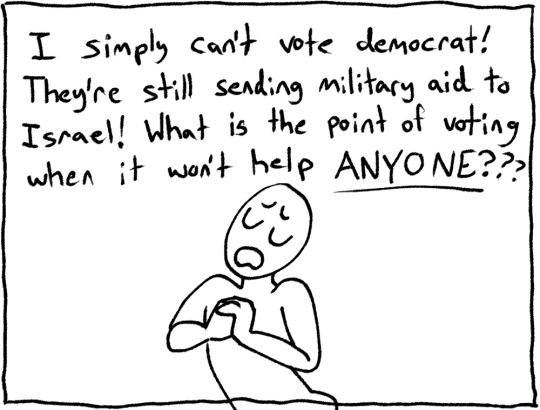

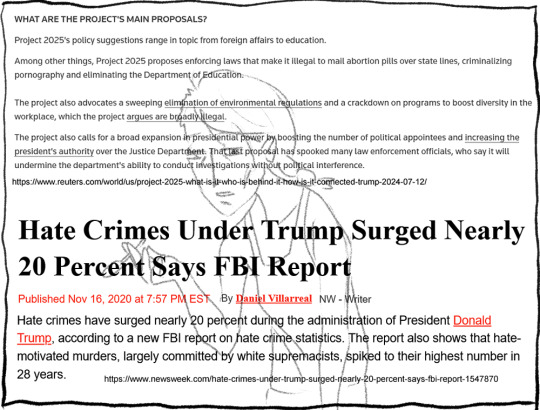
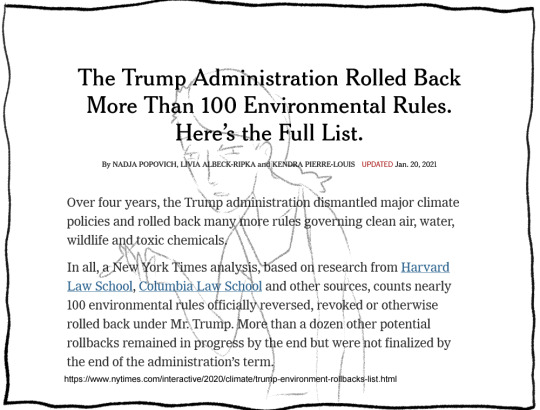
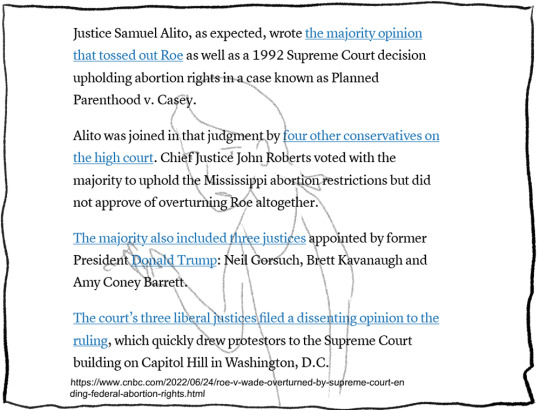
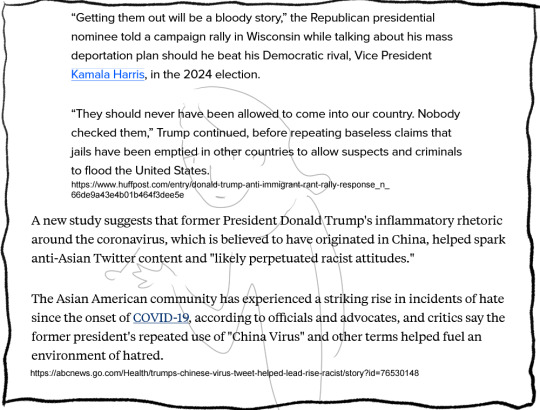
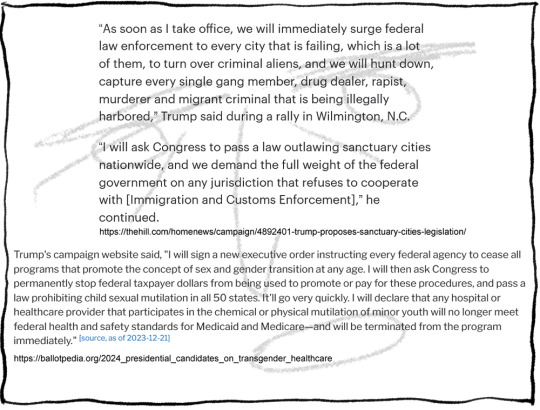
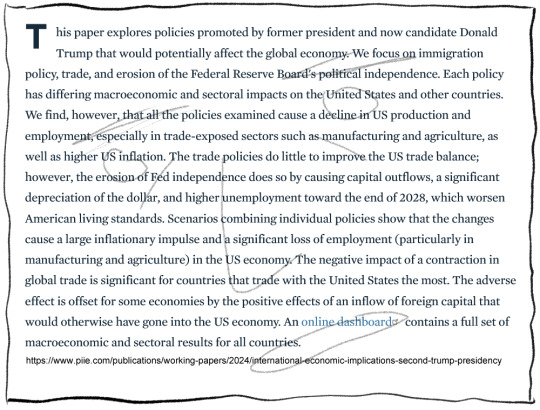
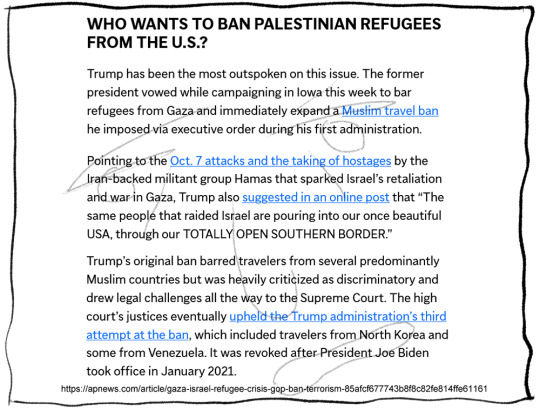
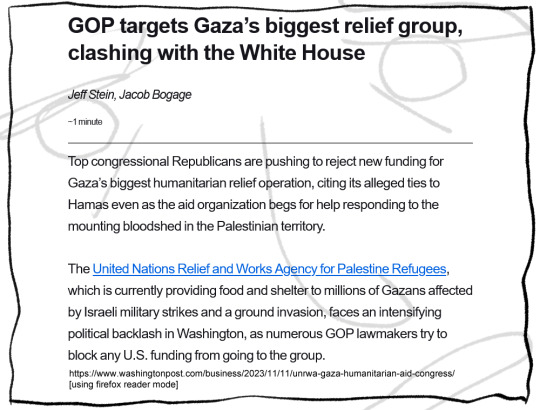
I only had 10 panels but here's some more fun exciting delightful articles about how republicans think public schools should make kids say christian prayers & teach students that slavery had no longterm affect on black communities, how trump makes fun of disabled people, & just a big categorized list of both republican & democrats' stances on various issues. Oh right the republicans are also lying & saying that the democrats gave all of FEMA's money to illegal immigrants even tho they're the ones who voted against FEMA funding. Not to mention that one time trump refused to fund California's wildfire relief until he was told there's people there who vote for him. Did all the anti-voters just conveniently forget how fucking bad it was when he was president last time.
Either you vote Harris-Wals or you let a bunch of hateful bigots run the US again. Stop using the horrible plight of the Palestinians to justify your voter apathy. It's really hard to help other people when you're fighting to survive. Put on your own oxygen mask first.
Any anti-voter morons will be blocked.
Articles referenced in screenshots under the cut:
https://www.nbcnews.com/politics/donald-trump/trump-israel-gaza-finish-problem-rcna141905
https://www.reuters.com/world/us/project-2025-what-is-it-who-is-behind-it-how-is-it-connected-trump-2024-07-12/
https://www.newsweek.com/hate-crimes-under-trump-surged-nearly-20-percent-says-fbi-report-1547870
https://www.nytimes.com/interactive/2020/climate/trump-environment-rollbacks-list.html
https://www.cnbc.com/2022/06/24/roe-v-wade-overturned-by-supreme-court-ending-federal-abortion-rights.html
https://www.huffpost.com/entry/donald-trump-anti-immigrant-rant-rally-response_n_66de9a43e4b01b464f3dee5e
https://abcnews.go.com/Health/trumps-chinese-virus-tweet-helped-lead-rise-racist/story?id=76530148
https://thehill.com/homenews/campaign/4892401-trump-proposes-sanctuary-cities-legislation/
https://ballotpedia.org/2024_presidential_candidates_on_transgender_healthcare
https://www.piie.com/publications/working-papers/2024/international-economic-implications-second-trump-presidency
https://apnews.com/article/gaza-israel-refugee-crisis-gop-ban-terrorism-85afcf677743b8f8c82fe814ffe61161
https://www.washingtonpost.com/business/2023/11/11/unrwa-gaza-humanitarian-aid-congress/
#nardacci doodles#journal comic#let's fucking vote#us politics#I still need to add alt-text to the images heck
2K notes
·
View notes
Text
Blessedly some sun today, so I went out biking. There's this wealthy area near our home that I like biking to because there's a bunch of trees there, but they have this, hideous church I pass by that makes me so angry. First of all, the church goers often park on both sides of the road on both lanes because the church doesn't have a parking spot, and it causes traffic every fucking time there's church service, I really can't believe this shit is legal. Second of all, on the side of the church they have four (4) banners that support philippine bills that take away reproductive rights of all birthing bodies & the criminalising of divorce. Btw the philippines is the only country in the world aside from the Vatican where divorce is still illegal. It's just after the first of a wave of storms in the philippines- and it has destroyed my granny's home- she's now living with my aunt and uncle:/ and it has also torn up some trees near where I live and near where I bike. It feels juvenile to say that this is one of those experiences where it's like "I never thought it would happen to me so soon", but living in the global south feels more and more like being the canary in the coalmine of western imperialism and it's espoused apathy to the climate crisis.
176 notes
·
View notes